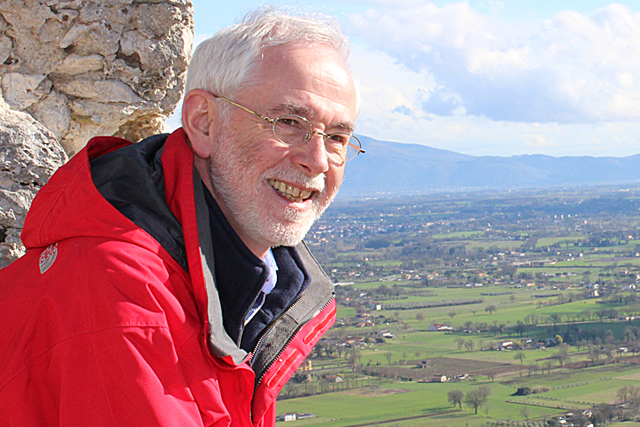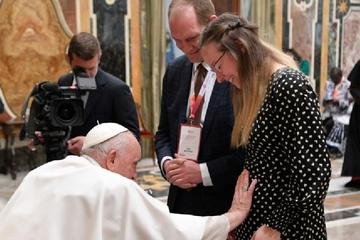
By Laura Ieraci
Christians in western societies are in the position to ease people “away from fear of the other to collaboration,” said Jesuit Father James Corkery.
Father Corkery will lead The Lay Centre’s annual Lenten retreat, March 24-26, in Rome. The theme is “Walking with the Stranger.”
In an interview ahead of the retreat, Father Corkery told The Lay Centre that the Christian perspective of welcome toward the stranger is based on “God’s big dream for humanity.”
“When strangers come,” he said, “they are a blessing – and they bless.”
Read the full interview below.
For information on the retreat or to register, contact info@laycentre.org.
Q. The challenge of “walking with the stranger” is as current as it is biblical. What does the Bible teach about walking with the stranger? Who is the “stranger” for a Christian?
Father Corkery: The Bible teaches that there is only one God, the Creator of all, whose salvation reaches to the ends of the earth. This is a God for all peoples and all nations; no person, no land, is beyond God’s reach. And because of this, the Bible holds, we should not be beyond each other’s reach either. Instead, we are invited to love our neighbors and welcome strangers from lands not our own.
A single human family is God’s big dream for humanity, where no one is a stranger any more and everyone is welcome to share what there is, so that life can be blessed for all.
Q. The sense of fear seems to be growing in some Western societies as they continue to become increasingly pluralistic. How can Christians and the Christian perspective help to allay these fears and even welcome this change?
Father Corkery: Yes, there is fear when societies become increasingly pluralistic. People “from outside” are experienced as “different” and threatening – as wanting what we think is ours and changing what we think should last forever.
Christians, by remembering that all men and women are one as brothers and sisters of Jesus, ease us away from fear of the other to collaboration with the other, to rejoicing in the other, to loving the other. It can be a wonderful adventure!
The Christian perspective is a “one human family” perspective that enables us to celebrate what is different about each other and to resist everything that would keep us apart. Ultimately, it makes yesterday’s strangers today’s brothers and sisters. And who knows where it will take us tomorrow!
Q. You’ve written about “bringing God to the world” as a Jesuit. How is “walking with the stranger” “bringing God to the world” and what would it look like in the life of a layperson?
Father Corkery: Yes, when I was speaking about how Jesuit spirituality sees God “working in all things,” I said that the Jesuit’s task was to bring this “working God” to the heart of the world. What I meant was that he should show, should shed light on, how God is at work in the depths of things.
The layperson is called and able to do the same, of course, in his or her particular situation. Many people I know who are engaged with migrants and refugees – strangers in our lands today – come to recognize in their faces the hidden presence of Christ, the Stranger; and they bring this presence of Christ, detected in their “walking with the stranger,” to the heart of the world.
Q. What are some personal challenges, but also communal challenges, that Christians need to try to overcome to walk with the stranger?
Father Corkery: The key, it seems to me, for individuals and for communities, is to be able to see that when strangers come, they are a blessing – and they bless. Suspicion of, hostility towards and a sense of being burdened by the advent of strangers often grip persons and nations, leading to policies of exclusion and rejection: “Take them away; they are not like us.”
I am Irish and I’ve even seen this in my own country, so many of whose people have been welcomed in other lands. So here I think back on the challenge of a Celtic prayer that sees the stranger as a blessing and imagines us being blessed by the stranger rather than the other way around.
Of the stranger, the final lines of the prayer say: “He blessed myself and my house, my cattle and my dear ones; and the lark said in her song, often, often, often goes the Christ in the stranger’s guise.” Now to see things like this is a challenge – and a blessing


